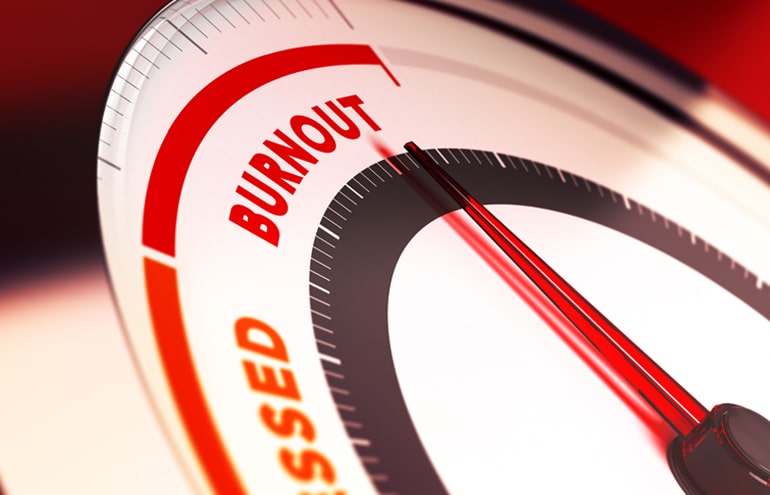The road to attorney burnout is the same as the road to success — the difference is attitude and perspective.
I burned out after 27 years of being a trial attorney. I thought I was doing everything right. Not so. I was working longer and longer hours and enjoying my practice less and less. I couldn’t sleep and, as a result, I was irritable. I suffered from stress, anxiety and depression, and I felt exhausted mentally, emotionally and physically.
It was a classic case of attorney burnout.
What I didn’t know was that I did this to myself.
The Worst Enemy You Meet Will Always Be Yourself
I had followed the road to attorney burnout with the best of intentions. Unfortunately, I fell squarely into these four traps.
The People Pleaser
People pleasers generally believe that by sacrificing for others, they will be rewarded. It is an indirect way of manipulating the opinion of our peers, usually with negative results.
It is important to ask the question, “Am I being a team player or am I being a people pleaser?” When you take on work you think will please your superiors, make sure that you are not sacrificing your well-being needlessly.
As an associate, I volunteered at every opportunity and took on problem clients that no one else wanted. What I didn’t know was that compliance comes at a cost. I spent far too much time working on cases that had no merit and consumed high levels of unbillable hours. I wanted to be seen as willing to work hard and do what no one else would do. I did not consider that there was a reason no one else wanted to work on those cases.
The Yes Person
Don’t be the person who is afraid to say no. If someone offers you work that is counterproductive, politely decline. Say no! Show your colleagues and your clients that you have a brain capable of discerning whether work is beneficial or detrimental to your career.
Most lawyers can tell whether a case has potential or is a train wreck waiting to happen on your desk. You probably will get more respect from your superiors if you decline work you know is a losing project than if you take it. I can remember when an associate had the integrity to tell a partner no on a losing project. All the other associates were shocked. I jumped at the chance to take it on. He made partner, and I didn’t.
The Perfectionist
How high do you set the bar? How unreasonable are your expectations? We often confuse the quest for excellence with an expectation of perfection. The problem is our definition of perfection is continually changing, raising the bar of acceptable results higher and higher.
Setting high standards is a critical component of success. Setting unreasonable standards is a key component of attorney burnout. If we compare ourselves to others and always judge ourselves to be lacking, true misery is ours.
Remember that there is a difference between being competent and being perfect. When you are satisfied with a document or pleading, let someone else proofread it and let it go. Endlessly looking for typos that aren’t there will only detract from your well-being. Do your best and be content with that.
The Imposter
We can become victims of our thoughts and self-criticize until we’re curled into a fetal position. Imposter syndrome leads us to doubt ourselves and dismiss accolades as undeserved and accomplishments as due to “luck.” We fear being exposed as a fraud. But the worst fear is that if people really knew us, they would not like us. An irrational fear at best.
One way we become imposters — burned-out imposters — is by trying everything alone. No one can do it all themselves — that is called solitary confinement. We build relationships, families and friendships to give meaning to our lives — and to have someone to reach out to when we’re at the end of our rope. When we help others, they tend to want to help us.
There is nothing more real or authentic than saying: “I need help.” There is nothing fake about that.
The Road to Attorney Burnout Is the Same as the Road to Success
The difference is attitude and perspective. Some people see blocks while others see steppingstones. Awareness of self-sabotaging behavior goes a long way toward helping you avoid it.
See this article as it originally appeared on AttorneyAtWork.com
